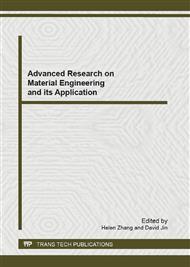p.97
p.101
p.105
p.110
p.114
p.119
p.123
p.127
p.131
PID Controller Design Based on Modified IMC and Optimal Robust Performance Based on Applied Mechanics
Abstract:
In this work, PID design with acceptable performance and robustness of closed-loop system was introduced. With the normalized time constant of internal model control (IMC) replaced by a damping ratio and a new time constant, a modified IMC was proposed and could be equivalent to a proportional integral derivative (PID) control. Since the control systems always have a dilemma between performance and robustness, the robust performance index was created with the integral of absolute error (IAE) weighted by the maximum sensitivity (Ms) with an exponential factor and the PID parameters were optimized through it. As an example, an empirical weighted factor 1.5 was selected to obtain the self-tuning PID formula for first-order plus delay time (FOPDT) processes. Simulation results show that the proposed PID control achieves good closed-loop performance and robustness.
Info:
Periodical:
Pages:
114-118
DOI:
Citation:
Online since:
February 2012
Authors:
Keywords:
Price:
Сopyright:
© 2012 Trans Tech Publications Ltd. All Rights Reserved
Share:
Citation:


